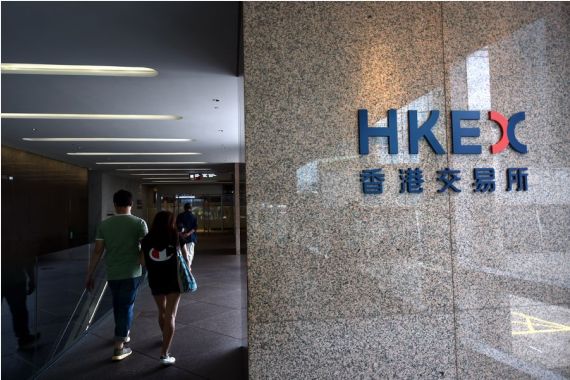Heritage Foundation has recently dropped Hong Kong and Macau from its 2021 Index of Economic Freedom, a list which is topped by Singapore.
Basically, the Heritage Foundation said that its annual Index of Economic Freedom, issued on Thursday, March 4, no longer included Hong Kong and Macau because it “measures economic freedom only in independent countries where governments exercise sovereign control of economic policies.” In other words, the Foundation implies that both the Governments of HK and Macau have lost their sovereignty when it comes to controlling its economic policies.
According to the Foundation, even though the citizens in HK and Macau enjoy more economic freedom that the average Mainland China citizens, “developments in recent years have demonstrated unambiguously that those policies are ultimately controlled from Beijing”.
To me, the decision of removing HK and Macau from the Index is completely wrong, and shows a profound lack of understanding of how the One Country, Two Systems principle works in both Hong Kong and Macau, as well as a profound lack of understanding of what the National Security Law was and what it actually implied for Hong Kong.
Let me start from the beginning: following the 1984 Sino-British Joint Declaration, in 1997 Hong Kong returned to China under the “one country, two systems” principle, by which HK would continue to enjoy its distinct political, socioeconomic, and legal arrangements under a unified China, for at least fifty years without change (note “at least”, which means that 2047 does not need to be at all the end of the One Country Two Systems formula).
In the case of Macau, in 1987, Portugal and China signed the Sino-Portuguese Joint Declaration which said the territory would be returned to China on 20 December, 1999, under the One Country Two Systems formula, with the same conditions as Hong Kong: Macau has its own government, legal and financial affairs.
Actually, the One Country Two Systems formula is considered to have worked even better in HK than in Macau, since, the citizens of Macau have not challenged it , whereas some Hong Kong residents have been challenging this principle repeatedly these last few years.
The One Country Two Systems formula has worked well enough, allowing Hong Kong to become stronger than it was, albeit the 2019-2020 riots.
As a matter of fact, in 2017, exactly 20 years after the handover I did some research comparing, from a socioeconomic perspective, Hong Kong of 1997 with Hong Kong of 2017.
The data showed that Hong Kong was in better shape in 2017 than in 1997. While the people’s life expectancy increased by eight years for men and women to 82 and 88 years, respectively, in the past 20 years, the public rental housing stock increased from 704,300 apartments in 1997 to more than 760,000 in 2017.
The thing that makes some people claim that the One Country Two Systems principle formula has been undermined is the passing of the National Security Law (NSL) last year, but, let’s make no mistake, the NSL was not and will not be an attempt to undermine the status quo, but simply a way to put an end to the unsustainable situation that HK was living due to the protests.
Almost every nation has laws to protect its national security (the US has this kind of laws too). Yet some businessmen and investors have been worried over the national security law passed by the National People’s Congress, China’s top legislature.
The new legislation has proven to be beneficial because it brought back stability and security whilst preserving Hong Kong´s special status, which, as I said, has not been challenged.
Back in June, senior Chinese officials tasked with the Hong Kong portfolio publicly asserted that 99.9 per cent of Hong Kong people will not be affected by this new law, since it targets only separatist activities, subversion of State power, terrorism, and foreign interference.
Nine months later, I reckon that most HK citizens can state that they have indeed not been affected by the NSL in any negative way and their lives have not changed, at least not due to the NSL.
So, if the US also has laws to protect national security, the same as most countries, and if most laws from other countries are actually harsher, what’s this fuss about? To me, HK has been used regularly as a pawn of the US-China Trade War initiated by former President Trump (even labelled by some as the New Cold War between the US and China).
As Hong Kong’s Financial Secretary Paul Chan Mo-po said, the city still enjoys its economic competitiveness with the free flow of capital continuing under One Country Two Systems and the rule of law is respected in the city. In other words, regardless of the indexes, Hong Kong is still one of the world’s most important financial hubs and one of the best places in the world to do business in.
And Macau is undoubtedly focusing on finance, by leveraging opportunities such as the new stock exchange, the digital yuan tests in the region and the development of enclave economies, most notably Hengqin. Index or no index, Macau is also becoming a financial hub within the Greater Bay Area (GBA).
The author works as a FinTech Advisor and Researcher. He holds an MBA and a doctorate in Hong Kong real estate law and economics. He has worked as a business analyst for a Hong Kong publicly listed company and he has given seminars at HKU on Shadow Banking in China and at several universities in Macau on China´s new digital yuan.




















